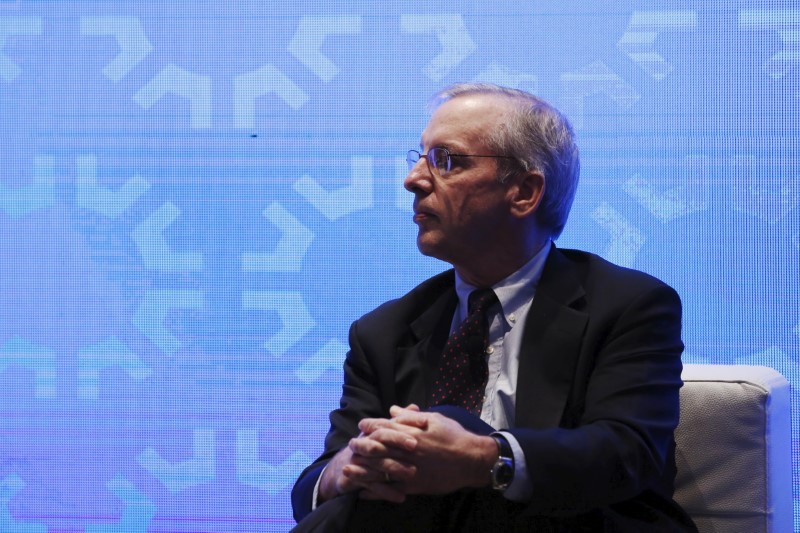By Jonathan Spicer
NEW YORK (Reuters) - The Federal Reserve will likely raise interest rates later this year if the U.S. economy remains on track, one of the most influential Fed officials said on Wednesday in perhaps the clearest policy signal yet from the central bank.
"If the economy stays on its current trajectory I think ... we'll see an interest rate hike later this year," New York Fed President William Dudley told a modest dinner gathering at the Lotos Club, downplaying any market-related risks of tightening monetary policy in December.
Dudley, a permanent voter on policy and a close ally of Fed Chair Janet Yellen, added that a quarter-point hike this year "is not really that big a deal" given the economy is "reasonably close" to the Fed's goals of 2 percent inflation and maximum sustainable employment.
The Fed left rates unchanged at 0.25-0.5 percent last month, though published forecasts showed that most of its 17 policymakers expected a hike before year end. Economists and traders now expect the Fed to again stand pat at its next meeting, a week before the U.S. election on Nov. 8, but to finally hike in December.
Dudley's comments appeared to reinforce that notion.
Asked about the risk of raising rates in December as investment funds wind down bets and as banks trim balance sheets for year-end, Dudley, who also oversees the Fed's market operations, said he was "definitely not worried about the timing" given the Fed smoothly hiked rates from near zero last December. That was the first time in almost a decade that the Fed raised rates.
"We have made quite good progress toward our objectives ... so clearly as we get closer to our objectives it's likely that we'd want to make monetary policy somewhat less accommodative," he said.

"That's quite different than saying there is this urgency to tighten policy aggressively," he said. "I don't see that urgency," he added, because unemployment has recently remained flat around 5 percent, inflation is still below target and also because of the economy's sub-par growth rate.